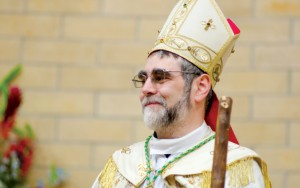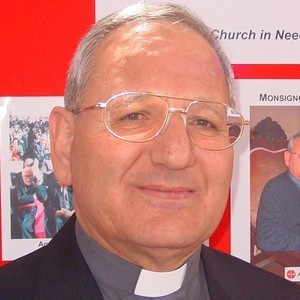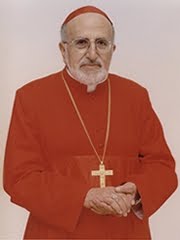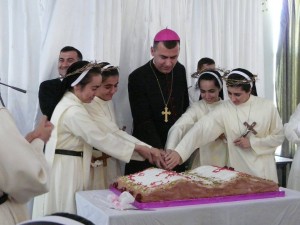 Today, Pope Francis nominated Archbishop Amel Shamon Nona, 46, as the new bishop of the Chaldean eparchy of St. Thomas the Apostle in Sydney, Australia. Nona is now the former Chaldean archbishop of Mosul, Iraq, he retains the dignity of archbishop and succeeds Msgr. Djibrail Kassab, whose resignation was accepted.
Today, Pope Francis nominated Archbishop Amel Shamon Nona, 46, as the new bishop of the Chaldean eparchy of St. Thomas the Apostle in Sydney, Australia. Nona is now the former Chaldean archbishop of Mosul, Iraq, he retains the dignity of archbishop and succeeds Msgr. Djibrail Kassab, whose resignation was accepted.
We know the horror Christians have faced in Mosul as ISIS forced Catholics and other Christians to flee, including the intrepid this archbishop. Nona famously said that the first time in history no Mass was offered in his diocese in about 1700 years: he lost his diocese.
The diocese, until 2003, was home to 35,000 souls; Mosul is 95 miles north of Baghdad.
Archbishop Nona has been living in Erbil, Iraqi Kurdistan at the Chaldean seminary.
Back in August, Jesuit Father James Schall wrote, quoting the archbishop:
“Try to understand us,” Archbishop Nona pleads. “Your liberal and democratic principles are worth nothing here.” Indeed, we can even argue that these principles paralyze us and make us blind to the reality of persecution by and in Islamic spheres. “You must reconsider our reality in the Middle East because you are welcoming in your countries an ever growing number of Muslims.” We think these immigrants are coming to find jobs or to escape violence. But in fact many are coming with missionary purposes, to convert in one way or another everyone to Islam. The Christians of Mosul were given the standard Muslim choice—conversion or death. Some managed to flee. The Islamic State means business.
“Also you are in danger. You must take strong and courageous decisions even at the cost of contradicting your principles.” We wonder: What is the man saying? “Contradict our principles?” Are these principles not what make us free? The Archbishop sees them as the avenues by which the Islam that is now destroying his diocese and city will destroy European and American cities. We find this preposterous. Hence, we will not consider that the Archbishop may well be right. This is just some religious aberration in some far-off place.
Seems to me that this is coming true. No?
God bless Archbishop Nona in his new assignment. May God prosper the work of his hands.
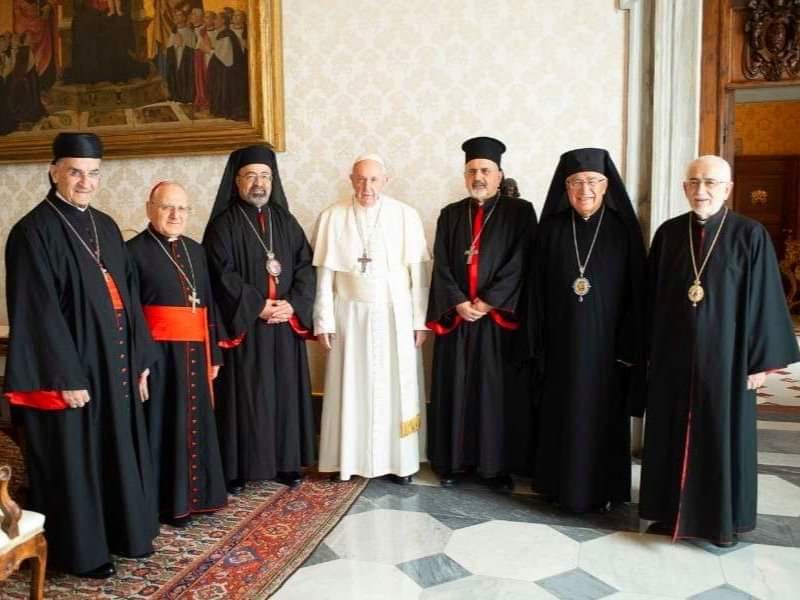 The Pope of Rome received on February 7th, the six Patriarchs of the Eastern Catholic churches: the Maronite, the Chaldean, the Copt, the Syriac, the Melkite and the Armenian. The conversation situated around circumstances of these particular churches in the Middle East.
The Pope of Rome received on February 7th, the six Patriarchs of the Eastern Catholic churches: the Maronite, the Chaldean, the Copt, the Syriac, the Melkite and the Armenian. The conversation situated around circumstances of these particular churches in the Middle East.
